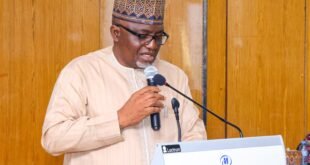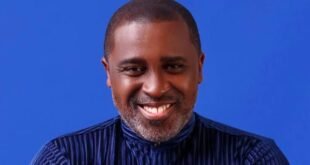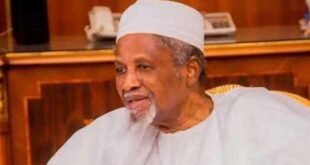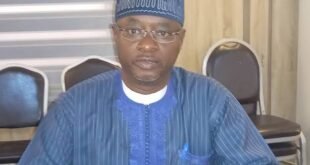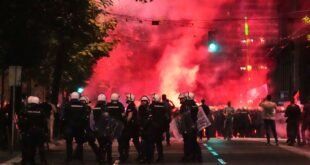French voters will go to the polls on Sunday for an exceptional moment in their political history: the first round of early parliamentary elections that could see the formation of the country’s first far-right government since the Nazi occupation of World War II, or no majority at all.
The outcome of the vote, after the second round on July 7 and an exceptionally short campaign, remains highly uncertain as three major political blocs are competing: the far-right National Rally, President Emmanuel Macron’s centrist alliance and the coalition of New Popular Front which includes centre-left, green and far-left forces.
Here’s a closer look:
How does it work?
The French system is complex and not proportionate to the national support for a party. Legislators are elected by district. A parliamentary candidate needs more than 50% of the daily vote to be elected outright on Sunday.
Otherwise, the two leading contenders, along with anyone else who has the support of more than 12.5 percent of registered voters, advance to the second round.
In some cases, three or four people make it to the second round, although some may step aside to increase the chances of another contender – a tactic often used in the past to block far-right candidates.
The main party leaders are expected to reveal their strategy between the two rounds. This makes the outcome of the second round highly uncertain, depending on political maneuvering and voter reaction.
The far-right National Rally, which is leading in all opinion polls, hopes to win an absolute majority, or at least 289 of the 577 seats.
The National Assembly, the lower house, is the more powerful of the two chambers of the French parliament. It has the final say in the legislative process compared to the conservative-dominated Senate.
Macron will have a presidential term until 2027 and has said he will not step down before the end of his term.

What is cohabitation?
If a political force other than his centrist alliance were to obtain the majority, Macron will be forced to appoint a prime minister belonging to this new majority.
In such a situation – called “cohabitation” in France – the government would implement policies that diverge from the president’s plan.
The modern French Republic has experienced three cohabitations, the last of which was that of conservative President Jacques Chirac and Socialist Prime Minister Lionel Jospin, from 1997 to 2002.
The Prime Minister is responsible to Parliament, leads the government and introduces legislative proposals.
“In the case of cohabitation, the policies implemented are essentially those of the prime minister,” said political historian Jean Garrigues.
The president is weakened at home due to coexistence, but still holds some powers over foreign policy, European affairs and defense because he is in charge of negotiating and ratifying international treaties.
The president is also the commander-in-chief of the country’s armed forces and is the one who holds the nuclear codes.
“It is possible that the president will prevent or temporarily suspend the implementation of a certain number of the prime minister’s projects, since he has the power to sign or not sign government ordinances or decrees,” Garrigues added.
“However, the prime minister has the power to submit these ordinances and decrees to the vote of the National Assembly, thus overcoming the reluctance of the president,” he noted.

Who leads defense and foreign policy?
In previous cohabitations, defense and foreign policy were considered the informal “private field” of the president, who usually managed to find compromises with the prime minister to allow France to speak with one voice abroad.
However, today, both the far-right and left-wing coalition’s views in these areas differ radically from Macron’s approach and would likely be subject to tension in the event of a potential cohabitation.
According to the Constitution, while “the president is the head of the army, it is the prime minister who has the armed forces at his disposal,” Garrigues said.
“Even in the diplomatic field, the president’s perimeter is considerably limited,” Garrigues added.
National Rally President Jordan Bardella said that if he were to become prime minister, he would oppose sending French troops to Ukraine, a possibility Macron has not ruled out. Bardella also said he would reject French deliveries of long-range missiles and other weapons capable of hitting targets inside Russia itself.
If the left-wing coalition wins the elections, it could hamper France’s diplomatic efforts in the Middle East.
The New Popular Front’s platform calls for “immediate recognition of the Palestinian state” and “breaking with the French government’s guilty support” for the government of Israeli Prime Minister Benjamin Netanyahu.
Macron had previously argued that recognition of Palestinian statehood should come at a “convenient moment”, suggesting that the war between Israel and Hamas does not allow such a move at the moment.
What happens if there is no majority?
The president can appoint a prime minister from the parliamentary group with the largest number of seats in the National Assembly: this is the case of Macron’s centrist alliance from 2022.
However, the National Rally has already said it would reject that option, because it would mean that a far-right government could soon be toppled via a vote of no confidence if other political parties join.
Macron cannot dissolve the National Assembly again before July 2025, according to the rules of the Constitution.
The president may try to build a broad coalition from left to right, an option that seems unlikely, given their political differences.
Experts say another complex option would be to appoint “a government of experts” not affiliated with political parties, but which would still have to be accepted by a majority of the National Assembly. Such a government would likely deal mostly with day-to-day issues rather than implementing major reforms.
If political talks drag on too long during the summer holidays and the July-August 26 elections, Garrigues said a “transition period” could not be ruled out, during which Macron’s centrist government “would still be in charge of current affairs,” pending further decisions.
“Whatever the National Assembly looks like, it seems that the Constitution of the Fifth Republic is flexible enough to survive these complex circumstances,” Melody Mock-Gruet, a public law expert who teaches at Sciences Po Paris, said in a written statement. “The institutions are more solid than they seem, even when faced with this experimental exercise.”
“However, another unknown remains in the equation: the population’s ability to accept the situation,” Mock-Gruet wrote. [AP]
Post-war France finds itself facing an election like no other. Here’s how it works and what comes next appeared first on TheConclaveNg.
 JamzNG Latest News, Gist, Entertainment in Nigeria
JamzNG Latest News, Gist, Entertainment in Nigeria
